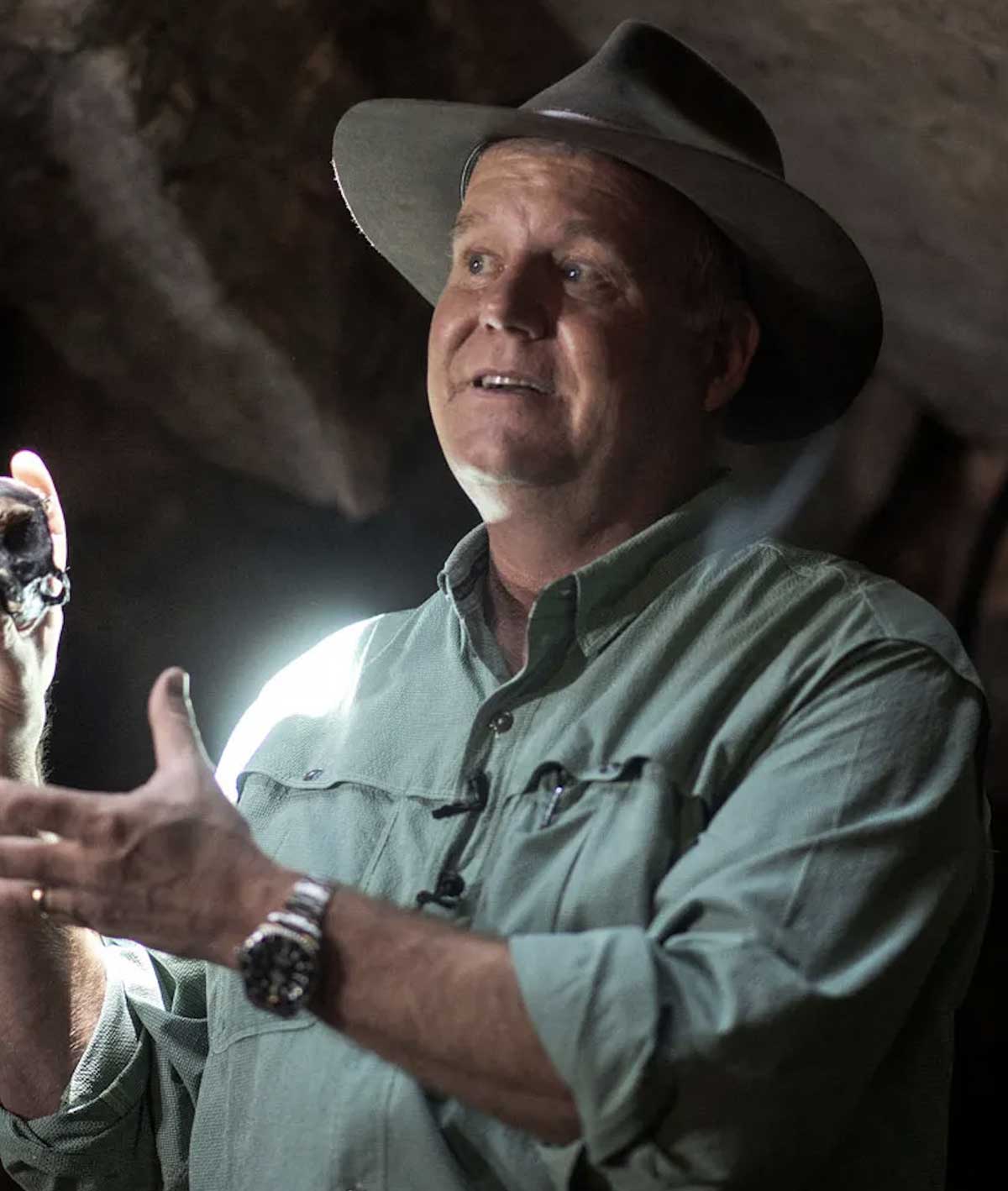Lee Berger
Paleoanthropologist

The American paleoanthropologist Lee Rogers Berger is internationally known for his discoveries related to human evolution. A PhD holder in palaeoanthropology from the University of Witwatersrand, South Africa, he is recognized for the discovery of fossils of the hominid Australopithecus sediba in South Africa in 2008. This discovery was pivotal in understanding human evolution, offering new perspectives on human ancestors and their environment.
Berger also led a research team that discovered Homo naledi, another ancestral species, in a cave at the Rising Star archaeological site, also in South Africa, in 2013.
These discoveries were recognised by the Smithsonian as among the top ten scientific discoveries of the decade in 2020. His contributions to exploration sciences have also resulted in advances in the field of applied exploration methods and the application of technology to exploration, excavation, and discovery. Teams under his leadership have recovered more individual hominid remains in sub-equatorial Africa during the last decade than were recovered in the previous 90 years.
Throughout his career, Lee Berger has received numerous awards and honours for his significant contributions to science, including the National Geographic Society's Hubbard Medal in 2016.
Berger also led a research team that discovered Homo naledi, another ancestral species, in a cave at the Rising Star archaeological site, also in South Africa, in 2013.
These discoveries were recognised by the Smithsonian as among the top ten scientific discoveries of the decade in 2020. His contributions to exploration sciences have also resulted in advances in the field of applied exploration methods and the application of technology to exploration, excavation, and discovery. Teams under his leadership have recovered more individual hominid remains in sub-equatorial Africa during the last decade than were recovered in the previous 90 years.
Throughout his career, Lee Berger has received numerous awards and honours for his significant contributions to science, including the National Geographic Society's Hubbard Medal in 2016.
We use cookies to give you the best online experience. By clicking "Accept" you are letting us know you agree to essential cookies.

